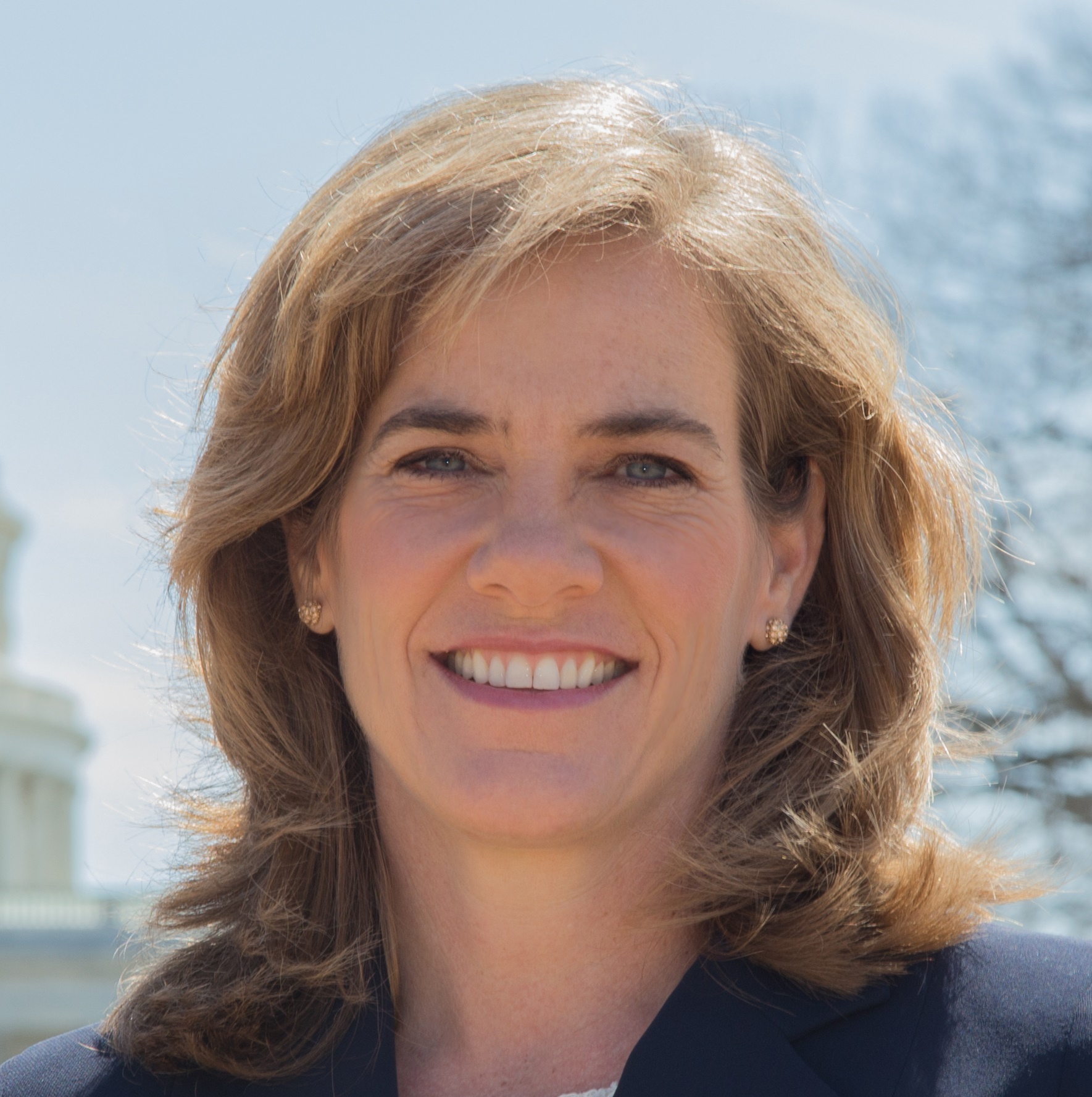By Bob Allen
The U.S. Supreme Court ruled by a thin margin June 26 that the Constitution allows religious objection to same-sex marriage but does not permit the government to deny marriage benefits to gay couples that are available to married couples of the opposite sex.
Writing for a 5-4 majority, Justice Anthony Kennedy said it is unconstitutional for a state to deny same-sex couples benefits of marital status including taxation, inheritance and property rights, hospital access, the authority to make medical decisions, adoption rights, health insurance and more.
“The limitation of marriage to opposite-sex couples may long have seemed natural and just, but its inconsistency with the central meaning of the fundamental right to marry is now manifest,” Kennedy wrote. “With that knowledge must come the recognition that laws excluding same-sex couples from the marriage right impose stigma and injury of the kind prohibited by our basic charter.”
 Plaintiff Maurice “Bojangles” Blanchard, an ordained Baptist minister who with his partner sued for the right to marry in their home state of Kentucky, said the couple were “elated” by the Supreme Court decision.
Plaintiff Maurice “Bojangles” Blanchard, an ordained Baptist minister who with his partner sued for the right to marry in their home state of Kentucky, said the couple were “elated” by the Supreme Court decision.
“God led us each step of this long journey as we used the methods and teachings of Christ, Gandhi and Martin Luther King Jr. to bring change where it seemed impossible,” Blanchard said in an email. “[We are] so thankful for all the other plaintiffs and their journeys as well. Love wins!”
Russell Moore, head of the Ethics and Religious Liberty Commission of the Southern Baptist Convention, predicted the ruling “will have wide-ranging and perilous consequences for the stability of families and for freedom of religion.”
 “Despite this ruling, the church of Jesus Christ will stand fast,” Moore said. “We will not capitulate on this issue because we cannot. To minimize or ignore a Christian sexual ethic is to abandon the message Jesus handed down to us, and we have no authority to do this.”
“Despite this ruling, the church of Jesus Christ will stand fast,” Moore said. “We will not capitulate on this issue because we cannot. To minimize or ignore a Christian sexual ethic is to abandon the message Jesus handed down to us, and we have no authority to do this.”
Moore joined other evangelical leaders in signing a “Declaration of Marriage” earlier today.
The Cooperative Baptist Fellowship issued a statement Friday calling for unity in the wake of the ruling. CBF Executive Coordinator Suzii Paynter said the ruling accentuates the diversity of the nation.
“People of faith woven into our nation’s vibrant religious tapestry fall along many points on the spectrum on the subject of same-sex marriage,” Paynter said in the statement. “In the High Court’s ruling today, that is borne out in both the majority opinion and in dissenting opinions referencing religious groups.”

The Alliance of Baptists welcomed the news, saying in a news release that without progress for all, there is no progress.
“We affirm that the Alliance of Baptists supports the rights of all citizens to full marriage equality, and we affirm anew that the Alliance will create places of refuge and renewal for those who are ignored by the church,” the statement said.
Alliance President Mike Castle added, “The historic win for marriage equality today and our willingness to seek justice allows the Alliance of Baptists to offer a powerful and prophetic witness to a Christian faith where love always wins.”
In his decision, Kennedy emphasized that groups and individuals who adhere to religious doctrines “may continue to advocate with utmost, sincere conviction that, by divine precepts, same-sex marriage should not be condoned.”
“The First Amendment ensures that religious organizations and persons are given proper protection as they seek to teach the principles that are so fulfilling and so central to their lives and faiths, and to their own deep aspirations to continue the family structure they have long revered.” Kennedy opined. “The same is true of those who oppose same-sex marriage for other reasons.”
“In turn, those who believe allowing same-sex marriage is proper or indeed essential, whether as a matter of religious conviction or secular belief, may engage those who disagree with their view in an open and searching debate,” Kennedy wrote. “The Constitution, however, does not permit the state to bar same-sex couples from marriage on the same terms as accorded to couples of the opposite sex.”
Opposing beliefs
 In an initial assessment of the decision, Holly Hollman, general counsel for the Baptist Joint Committee for Religious Liberty, noted the court’s majority “respectfully acknowledges that some deeply held and long-standing religious beliefs oppose same-sex marriage.”
In an initial assessment of the decision, Holly Hollman, general counsel for the Baptist Joint Committee for Religious Liberty, noted the court’s majority “respectfully acknowledges that some deeply held and long-standing religious beliefs oppose same-sex marriage.”
“In doing so, I believe Justice Kennedy was trying to quell fears that religious beliefs at odds with the court’s view of same-sex marriage are beyond the pale of civil discourse,” Hollman said. “In heated public debates over marriage equality, religious beliefs have not always been treated so respectfully.
“Of course, this decision does not answer all the questions about the conflicts between religious institutions and legal rights of same-sex couples. It does, however, acknowledge that marriage has both religious and civil meanings. Respect for religious differences will be a key component of working out the various conflicts that will arise in the wake of this decision. The court today, however, was properly focused on the civil definition of marriage.”
Later, Hollman released an analysis of the decision as it relates to churches.
The Association of Welcoming and Affirming Baptists called today’s ruling “a significant milestone for the LGBTQ community.”
“Among core Baptist beliefs is the separation of church and state,” AWAB said in a statement. “In the secular arena, the Supreme Court’s ruling clearly recognizes the equality of marriage for all people completely independent of our or other Baptists’ religious beliefs. In the face of anti-equality rhetoric among part of the broader Baptist family, AWAB calls specifically on the Southern Baptist Convention to encourage civil compliance with equality law among their membership, regardless of whether individual churches choose to conduct or theologically acknowledge same-sex unions.”
 Gus Reyes, director of the Christian Life Commission, the public policy and moral concerns agency of the Baptist General Convention of Texas, emphasized marriage as a divinely ordained “holy union between one man and one woman,” not subject to redefinition by any court.
Gus Reyes, director of the Christian Life Commission, the public policy and moral concerns agency of the Baptist General Convention of Texas, emphasized marriage as a divinely ordained “holy union between one man and one woman,” not subject to redefinition by any court.
“We respect the Supreme Court decision as the law of the land, but we believe in One who is higher than national laws, and ultimately, we must submit to God’s authority,” Reyes said. “Marriage is a God-designed and God-ordained institution, and no Supreme Court decision can redefine what has been defined by God.”
In light of the ruling, Reyes suggested churches consider taking several steps.
“First, we recommend churches adopt bylaws and employment policies that clearly define biblical marriage and protect church property from use in same-sex ceremonies. The CLC offers examples of how this may be done, which can be found on our website,” he said.
“Additionally, ministers who do not agree with the state’s understanding of marriage may wish to refrain from signing state marriage licenses and move to offering a covenant marriage consistent with biblical teaching.”
Grace and respect
 David Hardage, executive director of the BGCT Executive Board, underscored Texas Baptists’ desire to share God’s love and “treat all people with grace and respect,” but he affirmed a traditional understanding of what the Bible teaches about marriage.
David Hardage, executive director of the BGCT Executive Board, underscored Texas Baptists’ desire to share God’s love and “treat all people with grace and respect,” but he affirmed a traditional understanding of what the Bible teaches about marriage.
“Texas Baptists believe the love of God, demonstrated by the death of his son on the cross, was for all people. We are committed to loving and caring for all our neighbors,” Hardage said.
“At the same time, we strongly affirm the biblical view of marriage as that between one man and one woman. This has been, is and will be our position on this matter.”
 The executive director of the Baptist General Association of Virginia also issued a statement.
The executive director of the Baptist General Association of Virginia also issued a statement.
“The Baptist General Association of Virginia honors the autonomy of the local church and of the individual believer,” said John Upton. “Each congregation and believer will have their own statements to make in response to the decision of the Supreme Court regarding same-sex marriage released earlier today. The BGAV has, in annual sessions, challenged every congregation to be caring and respectful to all persons while affirming its commitment to the biblical view of marriage as between one man and one woman.”
 Jeff Hood, an LGBT activist in the Dallas area and 2009 graduate of Southern Baptist Theological Seminary in Louisville, Ky., likewise emphasized God’s love, but he took an altogether different view on the subject of same-sex marriage.
Jeff Hood, an LGBT activist in the Dallas area and 2009 graduate of Southern Baptist Theological Seminary in Louisville, Ky., likewise emphasized God’s love, but he took an altogether different view on the subject of same-sex marriage.
“God is love. When love wins, God wins,” said Hood, minister of social justice with Hope for Peace and Justice. “I am thankful that the Supreme Court stood with God this morning, and I pray that Texas Baptists will do the same.”
Ellin Jimmerson took the same approach on Facebook when the ruling was announced on Friday morning.
After declaring that “love wins,” she added: “Congratulations to all who have waited far too long!”
Jimmerson, an unpaid community minister at Weatherly Heights Baptist Church in Huntsville, Ala., became a statewide sensation — and to some, a villain — in February when she conducted Alabama’s first same-sex wedding.

Payback was swift. In March, the church was dismissed from the Madison (County) Baptist Association.
She said she will conduct same-sex weddings again, if asked, and hopes members of the LGBT community will see spiritual reality contained in the Supreme Court ruling.
“This is saying ‘we love you and God loves you,’” she said.
Meanwhile, Richard Land, president of Southern Evangelical Seminary in suburban Charlotte, N.C., and former president of the Southern Baptist Convention’s Ethics and Religious Liberty Commission, said the “battlefield shifts to religious freedom.”
“Will the progressive, totalitarian and intolerant left weaponize the government and attempt to force or compel people to affirm same-sex behavior and relationships?” he asked. “Or will they respect the freedom of conscience guaranteed by the Constitution? These will continue to be questions for the coming generations, now that the high Court has seized the historic role of defining marriage from the individual states and stripped it away from voters.”
Jim Denison, founding president of the Denison Forum on Truth and Culture in Dallas, compared the decision to the 1973 Roe v. Wade ruling that legalized abortion.
“Now the court has sided again with an activist agenda rather than historic moral commitments,” said Denison, former pastor of Park Cities Baptist Church in Dallas and theologian-in-residence with the Baptist General Convention of Texas.
“This decision renders marriage genderless and makes it primarily about he desires of adults rather than the welfare of children, families and society.”
Denison raised questions about what the ruling will mean for churches, Christian institutions and individual believers who conscientiously oppose same-sex unions.
“Most legal observers believe that pastors and churches will not be forced to perform same-sex marriages. But what about a church facility rented for weddings?” he asked. “What about universities that offer married heterosexual students housing but not married gay and lesbian students? What about hiring practices and spousal benefits at faith-based hospitals and ministries? Will statements defending biblical marriage be considered hate speech? Will religious nonprofits that support biblical marriage see their tax-exempt status threatened?
“The ruling is fresh, the questions are many, and the answers are few.”
Ken Camp, managing editor of the Baptist Standard, contributed to this story.
Related commentary:
Same-sex marriage: Church divided, but liberty protected, by Marv Knox
Obergefell decision does not remove the separation of church and state, by Holly Hollman
Previous stories:
Supreme Court brief argues for gay Baptist minister’s right to wed
Baptist minister’s case for gay marriage going to Supreme Court
Latest gay marriage ruling, which involved Baptist plaintiff, could hasten Supreme Court decision
Court considers gay marriage arguments affecting four states
